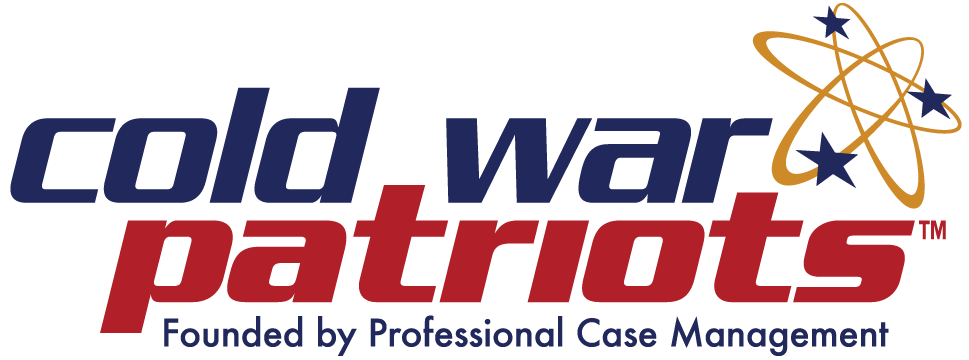
Letter To Secretary Acosta
SUBMITTED VIA OVERNIGHT DELIVERY
March 12, 2019
The Honorable Alexander Acosta
Secretary
U.S. Department of Labor
200 Constitution Avenue, NW
Washington, DC 20210
Dear Secretary Acosta,
I am sending this letter on behalf of Professional Case Management (PCM), concerning the final changes to the existing rules governing the administration of the Energy Employees Occupational Illness Compensation Program Act (EEOICPA) that were published in the Federal Register on February 8, 2019. These changes, as PCM and others pointed out during the comment period, are at odds with the EEOICPA’s plain language and remedial purpose, and will ultimately harm the very people that law was designed to protect. Unfortunately, it appears that the Department of Labor (DOL) did not adequately consider those concerns. We also disagree with the DOL’s assertion that the new rules do not impose any new regulatory burdens and are merely incorporating current processes and procedural changes that have already been implemented. Because of these new rules and their significance, the former workers whose lives literally depend on the benefits available to them under the EEOICPA will be at greater risk. In the coming days, we will be filing a petition for review challenging the DOL’s new EEOICPA regulations. We sincerely hope that you will consider staying the April 9, 2019 effective date of the rules pending judicial review of our challenge, pursuant to Section 705 of the Administrative Procedure Act (APA). Doing so would ensure that the DOL has adequate opportunity to revisit this matter and ensure that any rule changes it ultimately adopts are consistent with Congress’ intent when it adopted the EEOICPA and in the best interest of beneficiaries.
PCM is the largest and most experienced EEOICPA health care provider in the country, serving the needs of former uranium miners, millers and haulers, and former nuclear weapons workers since 2002. In addition, PCM has been a home health care provider under various state and federal programs since 1997. We appreciate the Department’s on-going efforts to implement and improve the Program, however we believe beneficiaries will be better served and the administrative burden reduced through a collaborative relationship with health care providers. When it passed the EEOICPA, Congress intended to abandon the position that the DOL must filter away illegitimate claims. Congress also sought to eliminate past obstacles to ensure workers who served this country received the benefits to which they were entitled. Ignoring the history of the EEOICPA, the new rules create obstacles for these workers, many of whom are elderly and extremely ill. Among other significant problems, the final rule:
- Makes the process to file a claim more cumbersome, difficult, and lengthy
- Institutes a preauthorization process for home health services, which will result in delayed or denied care to those who need it most
- Vaguely refers to a potential change to the payment system
- Authorizes the DOL to contract with a particular provider to provide services under the
EEOICPA
The preauthorization process is one of the most glaring examples of the final rule conflicting with the purpose and intent of the EEOICPA. The DOL, including the Division of Energy Employees Occupational Illness Compensation (DEEOIC) Director Rachel Leiton, have consistently rejected the idea of preauthorization. The EEOICPA unambiguously states, at 42 U.S.C. § 7384t(d), that a worker is eligible for benefits as of the date a claim is filed:
An individual receiving benefits under this section shall be furnished those benefits as of the date on which that individual submitted the claim for those benefits in accordance with this subchapter.
Yet, the final rule establishes a preauthorization process, including new forms beneficiaries and their physicians must complete, in which the eligibility for benefits depends not on the date the claim is submitted, but instead on the date the DOL issues the preauthorization. As PCM pointed out in its comments to the proposed rule change (a copy of which is attached for your reference), the proposed preauthorization process creates the very regulatory obstacles that the Act was intended to cure; it is impermissible under the plain language of the Act; it will result in home health care delays or denials to qualified and seriously-ill claimants; and it will force home
health care providers to either violate state laws or deny care to these elderly, sick workers.
Claimants often need referrals to home health care on an emergency basis, such as when they are discharged from a hospital or other medical facility. The current system allows providers to promptly meet the needs of the ill claimant and then request retroactive authorization. The final rule changes that, leaving claimants at the mercy of a new, longer, and more complicated process
to obtain necessary medical care.
The final rule also refers to a potential change to the payment system, but fails to identify if or when such a change will be implemented, the factors DOL will consider in determining whether to adopt a new payment system, a timeline for evaluating or implementing such a system, or any other details that would inform providers or claimants what to expect or how this may impact them.
The changes above highlight only a few of the problematic areas in the new rule. Many other aspects of the final rule are similarly troubling and, in our view, legally indefensible. We care deeply about those who served our country, and we know you do as well. Therefore, we ask that you stay the April 9, 2019 effective date of the rules pending judicial review of our challenge, pursuant to Section 705 of the APA. Staying the effective date would preserve the status quo, avoid the potential harms outlined above, and afford the DOL sufficient time and opportunity to determine how to proceed in its rulemaking process to ensure that Congress’ intent when it adopted the EEOICPA is followed.
Sincerely,

Greg Austin
President
Professional Case Management
